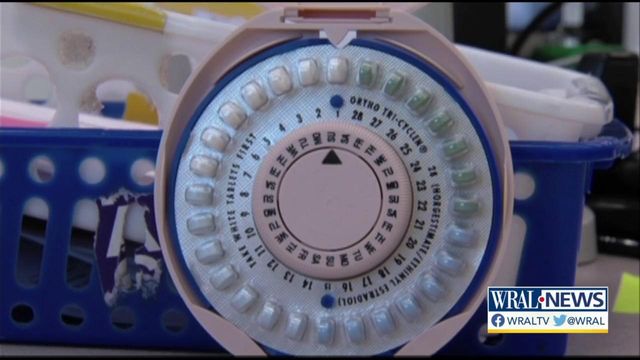Birth control pills no longer require a prescription in North Carolina
North Carolinians will be able to receive certain types of birth control from qualified pharmacists without a prescription effective Feb. 1.
Posted — UpdatedNorth Carolinians will be able to receive certain types of birth control from qualified pharmacists without a prescription effective Feb. 1.
Section 1 of the bill allows qualified pharmacists to provide "self-administered oral or transdermal contraceptives after the patient completes an assessment consistent with the Centers for Disease Control and Prevention's United States Medical Eligibility Criteria (US MEC) for Contraceptive Use."
This law explicitly does not allow pharmacists to distribute emergency contraception, such as the morning-after pill, but that medication is already available over the counter.
“This should make it so that women don’t have to deal with getting a doctors appointment, navigating to a clinic, especially during COVID times,” said Elizabeth Finley, chief external affairs officer with SHIFT NC, a non-profit in Durham promoting sexual health in teens.
Finley said unplanned teen pregnancies in the state decreased 75% in the last decade or so because of such efforts. However, minors need written consent to be able to obtain birth control without a prescription, according to the new state law.
“When this is fully implemented, what we should see is that a person can go to the pharmacy and tell the pharmacist that they need oral contraceptives or the skin patch and that pharmacist will do a health screening," she said. "The same kind of health screening that a person would do at the doctor’s office."
It’s also beneficial for women who depend on contraception for other healthcare reasons. The law also allows these pharmacists to give prenatal vitamins, nicotine replacement therapy, HIV prevention medications and glucagon for treatment of severe hypoglycemia.
“If a patient, for instance, has a sudden change in their insurance status and was getting great benefits from hormonal management of her symptoms, this might be a way that she can continue to access that therapeutic benefit,” said Jessica Morse, an OBGYN at UNC Medical Center.
Many women across the Triangle weren’t aware this law existed until now.
“I was so excited to hear this today,” said Denaa Griffin, who lives in Apex.
“If you think about this tangibly and practically, women who live in an area where they don’t have transportation, it’s just difficult to get to the doctors office or the county health department, wait there all day and figure out a way also to go pick up a prescription. Then find a way home from the pharmacy,” Griffin said.
There’s a particular community she also believes will feel supported with this effort.
“Women who suffer from endometriosis, uterine fibroids and those types of medical issues where it doesn’t really have to do with family planning. They are just trying to survive and go to work without any pain,” she said.
The new law could help shrink North Carolina’s 44% unplanned pregnancy rate and become a stepping stone for other resources.
“The long-term hope for us and for lots of the professionals that work in reproductive health care is that eventually oral contraceptives will be available over the counter,” Finley said.
Morse said the law also opens a door to more partnerships within the healthcare system.
“We know that other states have done this successfully. We know that these are medications that are quite beneficial and quite low-risk," she said. "This especially benefits people who live in areas of our state which have less access to routine healthcare."
North Carolinians shouldn’t expect any changes to insurance because of this. They can expect the same coverage as before. It will, however, take some time for pharmacies to adjust to the supply and process of the new changes.
“My hope is that this becomes a trend and that we see this all over the country,” Griffin said.
A prescription will still be necessary for emergency contraception.
The law also authorizes pharmacists to administer vaccines, including those for flu and COVID-19, but requires written consent from a parent or guardian for vaccines given to anyone under 18 where vaccines have "emergency use authorization" and not full FDA approval, such as the case with COVID vaccines when they first came to market.
Related Topics
• Credits
Copyright 2024 by Capitol Broadcasting Company. All rights reserved. This material may not be published, broadcast, rewritten or redistributed.






